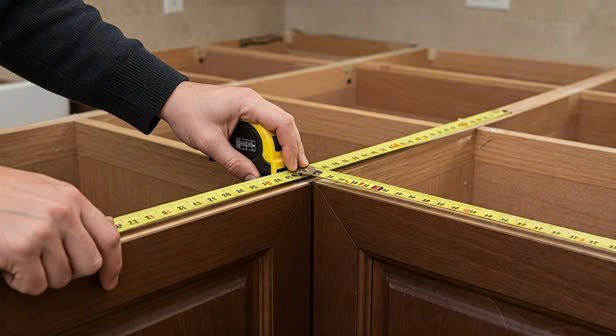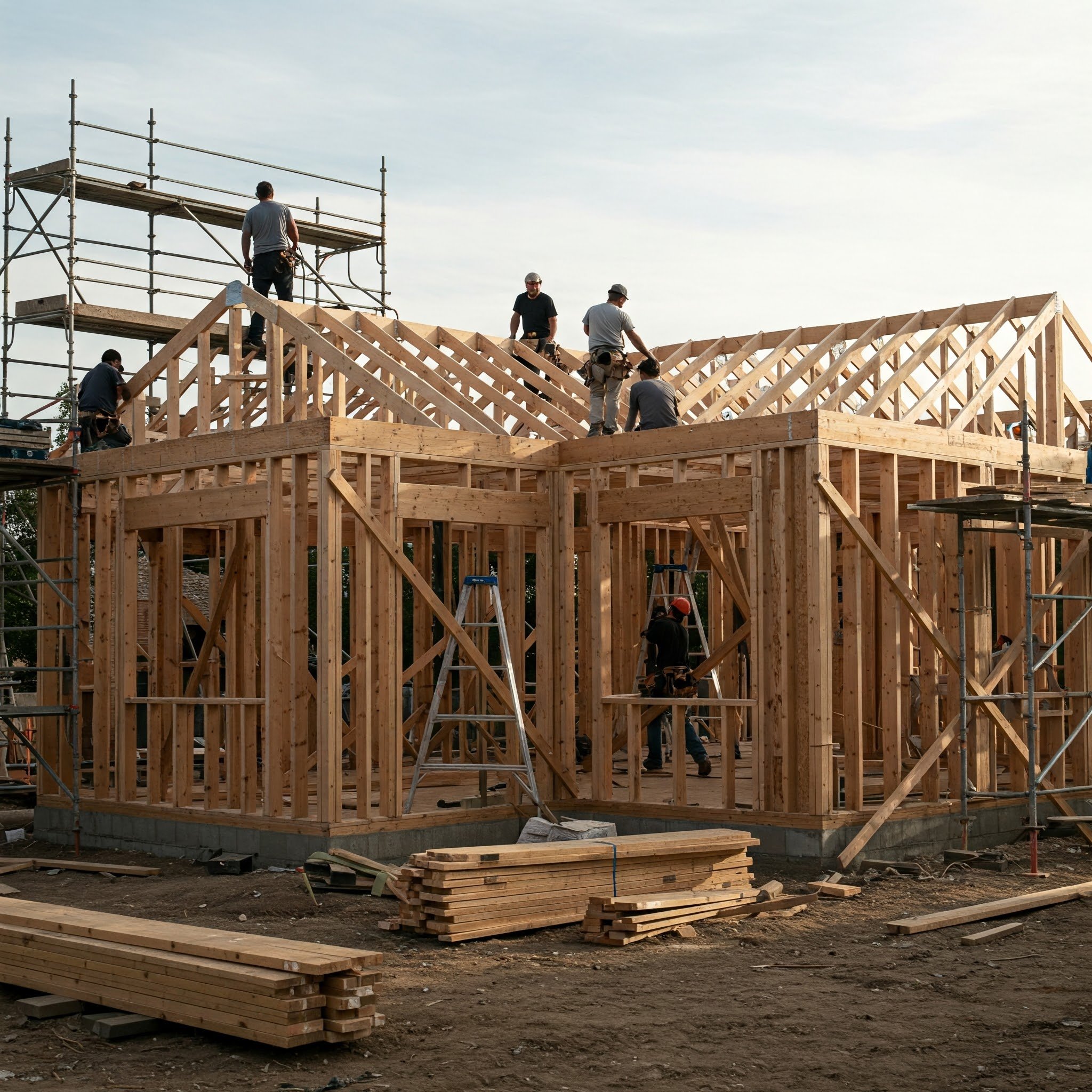A Comprehensive Guide To Upsizing Your Living Space
Explore our comprehensive guide to upsizing your living space, featuring tips and strategies for making a seamless and successful transition to a larger home.
Are you feeling cramped in your current home? Maybe it's time for you to upsize. Upsizing can be a very important event for you and your family. Whether you are expanding your family, starting a new home office or business, simply want a room to roam, or have a raise at your job, you can consider upsizing your home.
As much as this can be a very positive change, the process of upsizing can be equally challenging. From assessing your needs to planning and executing the move, this comprehensive guide will help you through every step of the process, ensuring a smooth transition for one of the most important decisions of your life.
1. Assessing Your Needs
Before beginning your journey to move to a bigger space, take some time to assess your needs thoroughly. You should consider factors such as the size of the home that you require based on the size of your family and, most importantly, hiring moving services.
Another major thing that you need to consider is your budget. You can look for homes based on your budget which will save you a lot of time to select the home that suits you the best. Besides that, consider the spaces that you will need at your home.
Are you looking for more bedrooms, a home office, extra storage, a home with outer space, or more? While you are assessing your needs, keep these things in mind. You should also think about any potential future changes, such as growing your family. This will help you select a home that will suit your family for years to come.
2. Budgeting and Financial Considerations
Upsizing your living space also comes with a price tag. It is essential to set a realistic budget while considering your income and financial resources. Take into account not only the cost of purchasing or renting a larger property but also additional expenses such as moving costs, renovations, and furniture.
Besides that, don't forget that maintenance can also add a hefty amount to your price. In addition to that, upsizing also comes with higher utility bills and property taxes. Make sure that your budget can accommodate these expenses without causing any financial harm in the future.
You can also consider getting financial consultation from the experts. If you are going ahead with a mortgage or loan, look around for the best interest rates and loan terms. Compare offers from multiple lenders and consider working with a broker to help you find the most suitable option. A larger loan also comes with high monthly payments and interest.
Finally, remember to set aside an emergency fund for unexpected expenses. It's wise to have financial cover for any unforeseen costs that may arise during the course. This may include repairs, renovations, or operating expenses for your new home.
3. Finding the Right Property and Moving
Finding the right property and moving are the critical steps in upsizing your home. Here is a breakdown of finding the right property and moving to your new home as we understand the underlying hardships of moving.
Neighbourhood Selection
When it comes to upsizing your living space, finding the right property is crucial. Begin your search by making lists of your needs and deal-breakers. After considering factors such as the size of your family, the number of bedrooms, bathrooms, storage, size of the garage or backyard, also look for the special features that you would want in your home.
The next thing to consider is the location of your property. Think about the neighborhood where you would like your children to be raised. Also, consider your lifestyle preferences and priorities. Check if you like a suburban area, a bustling city, or a peaceful countryside.
Look for different neighborhoods and communities to find one that aligns with your needs in terms of accessibility to schools, parks, shopping centers, and public transportation options. After researching, visit the neighborhood in person and talk to the residents to ensure its quality.
Home Inspection
Before hiring movers to move to your new home, it's essential to consider a thorough home inspection, particularly of the property’s foundation. The foundation is a very important aspect of the home as it carries the whole load of the structure. So, foundation issues can significantly impact the safety and structural stability of the home.
It is important to identify the issues and proceed with the foundation repair before hiring local movers to move to your new home. During the home inspection process, hire a qualified professional to assess the condition of the property’s foundation.
If you are willing to do it yourself, look for signs of structural damage, such as cracks in the walls, unlevelled floors, windows, and doors that are separated from the walls and do not open or close properly. Mold formation, efflorescence, and moisture are also indications of underlying issues that might cause bigger problems in the future.
Other mechanical problems may also require fixing. You can consider the issues that can be fixed and have them repaired before moving, but if there are bigger issues, you should not overlook those problems.
Addressing foundation repair issues before moving to a new home is crucial for ensuring the safety and stability of your property. By proactively addressing these issues, you can avoid additional expenses in the future. You can consult with a reputable specialist to evaluate the extent of the damage and have it repaired before settling in your new home peacefully.
Hiring Local Movers
Once you have addressed any foundation repair concerns and finalized the home that you want to move in, you can hire moving services to help you move.
Hiring local movers offers several advantages, including their familiarity with the area, expertise in navigating local regulations, and ability to provide customized service tailored to your needs. Some might help you with transportation, while others might also help you pack and unpack. You can choose the service according to your needs and budget.
Research multiple moving companies, read reviews, and request quotes to compare pricing and services. Communicate openly about your needs, including any special concerns and requirements that you might have.
Also, discuss their availability on the day you are moving and align your schedules. Discuss logistics such as packing and transportation to ensure efficient moving.
On the moving day, remain accessible to oversee the process. Guide them through packing and unpacking and remind them of your valuables. Conduct a final walk-through of your home to ensure that nothing is left behind, and inspect your belongings upon arrival.
Ultimately, finding the right property is all about finding the right balance between your wants, needs, and budget. This is a crucial decision for you and your family, so don't rush the process. Take your time to research, be patient, and trust your instincts.
Adapting to Your New Lifestyle
After completing the hard part of moving, it is time to settle into your new home and relax. It might take some time for you to adapt to your new home but understand that this is your safe space, and you can take your time.
Take time to explore your new neighborhood and discover the facilities. Consider any necessary adjustments to your daily routine and your lifestyle to maximize functionality and comfort. The large home will only make your lifestyle more comfortable.
Take time to understand each space in your home and customize it according to your needs. Include regular maintenance in your routine to make the most of your new home for a long time.
Conclusion
In conclusion, whether you are looking for more space to accommodate a growing family or you simply want to upgrade your living space, upsizing your home can be a rewarding experience. By following these steps, you can navigate this process with confidence and ease. The key is to be patient and understand your and your family's needs.






























